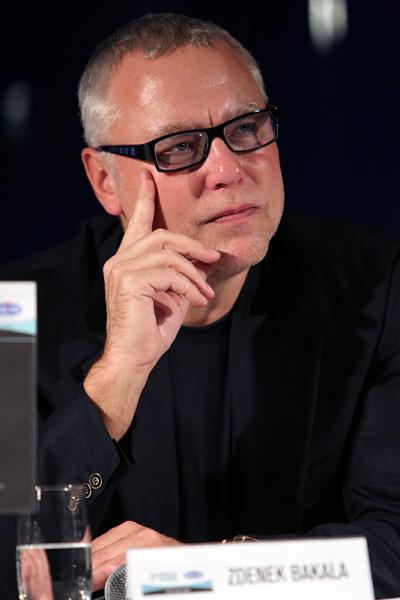Bakala adds weight to cycling reform and breakaway league
Quick Step owner calls for change

Omega Pharma-Quick Step owner Zdenek Bakala used the team’s 2012 unveiling in Antwerp, Belgium, to set out his vision for the sport. The Czech financer has invested heavily in the Belgium team since taking a majority share last year and is now intent on a global restructuring of the sport, rather than just success with Patrick Lefevere’s riders.
His comments will send shockwaves all the way to Lausanne, home of the UCI, with the governing body as yet unwilling to entertain reform from the outside.
“We happen to live in a world where most sport industries have commercialised themselves and turned themselves into industries that are managed by professional managers for the well-being of all the stake holders and we believe that it’s time that the cycling industry restructures itself. It should become a little bit more commercial and provide greater benefits for the riders and the fans,” Bakala told the media on Monday.
“In my opinion the process will take several years but in five years time we will see the world of cycling as a completely different world to the one we see today. We, the shareholders, and the sponsors would like to play a meaningful role in this going forward.”
Although he would not go as far as selecting which of the two breakaway propositions he favoured, his comments show a desire and motivation from within the sport to reform. This was the first team presentation ahead of the 2012 season. How many more squads that follow Bakala’s lead will be crucial in determining a more general mood from within the rest of the professional peloton.
“I’m not going to be changing the cycling world by myself,” he added, “but when you look at the way in which international cycling is organised today there are certain pressure points that are building up. It’s obvious that the sport can generate more revenues than it already generates if it was organised slightly differently, for example with broadcast revenues, and there are countries where cycling has a huge potential and it hasn’t been exploited.
“Once international cycling has found a way to restructure itself along more commercial lines the sport itself will be able to demonstrate to the world that it’s a more worthwhile world for advertising.”
Get The Leadout Newsletter
The latest race content, interviews, features, reviews and expert buying guides, direct to your inbox!
The UCI has called the Rothschild and Gifted (WSC) model unworkable, while although they have not publicly commented on the Belgian bid known as Cycling 2012, it is understood by Cyclingnews that Bakala is a main proponent of the teams lining up behind the WSC.
He would not be drawn on how the UCI would alter under a new model of cycling, but stressed that three major stakeholders needed to work together and that the results would benefit all.
“There are three partners that will have to work in order to create a brighter future for international cycling, the UCI, the teams and the race organisers. Each one of those three, without their involvement, nothing positive can come about.”
“I have seen most of the ideas that exist on paper but because discussions are on going with how to proceed I will decline to answer which one I will support. But you can see already that these two proposals that there is a lot of motivation for cycling to change how it is managed. That wasn’t the case in the past. Today you have at least two ideas and there may be more.”
Daniel Benson was the Editor in Chief at Cyclingnews.com between 2008 and 2022. Based in the UK, he joined the Cyclingnews team in 2008 as the site's first UK-based Managing Editor. In that time, he reported on over a dozen editions of the Tour de France, several World Championships, the Tour Down Under, Spring Classics, and the London 2012 Olympic Games. With the help of the excellent editorial team, he ran the coverage on Cyclingnews and has interviewed leading figures in the sport including UCI Presidents and Tour de France winners.
